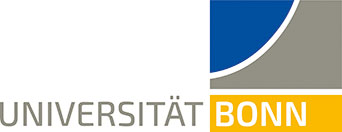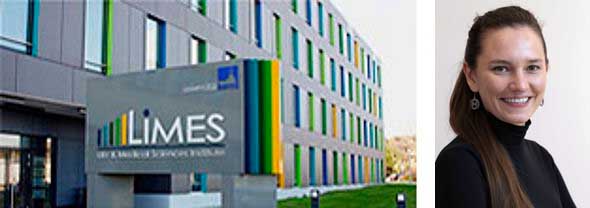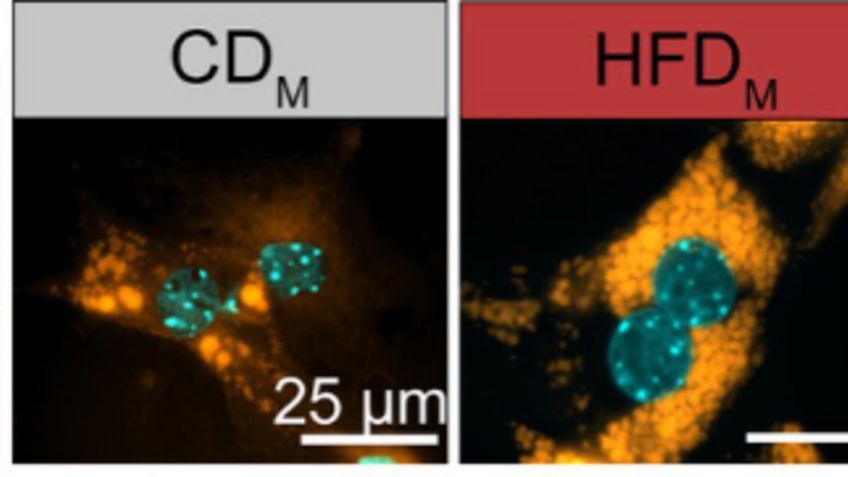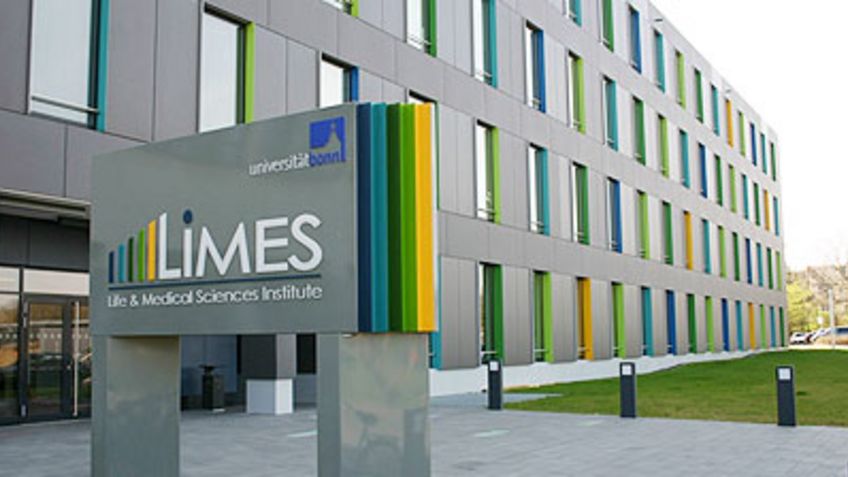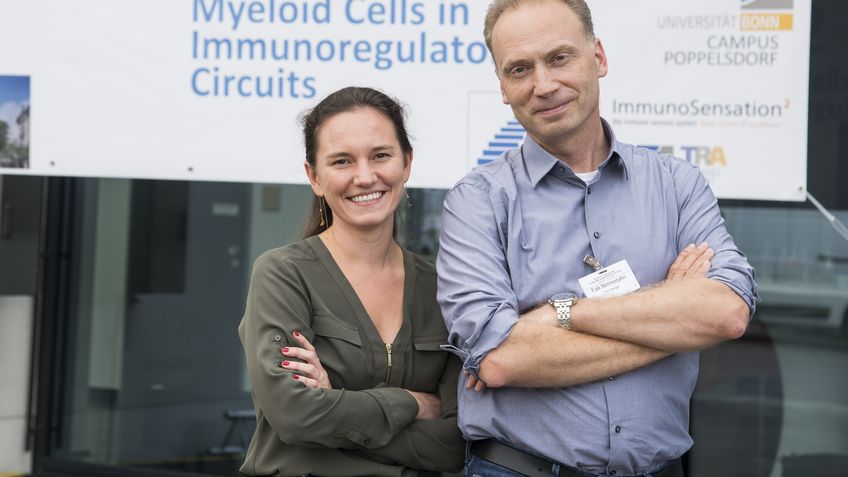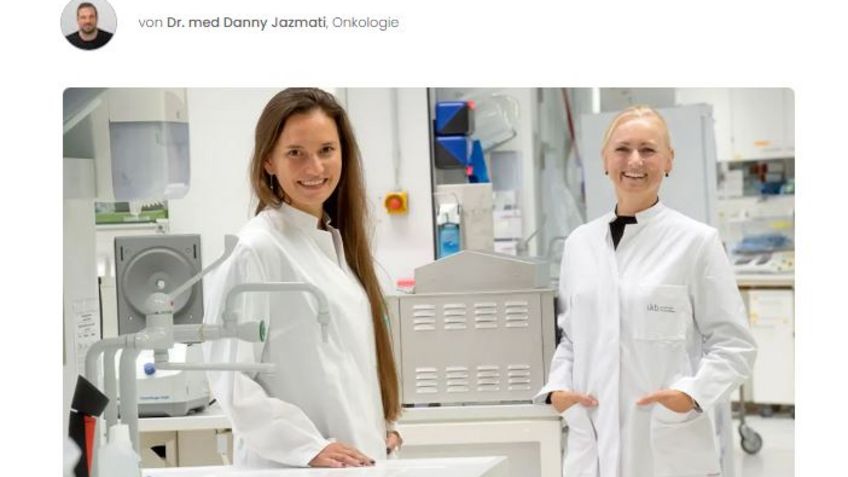What is your work area and the development that you have thematically taken in recent years?
After my extremely diverse training as developmental biologist – I went from working in tracheal development in Drosophila to heart development and ER stress in mouse – I had the feeling that I needed a new challenge. The last few months of my PhD research as well as the work that was being done at LIMES led me into the field of immunology. After some research, I soon realized that this scientific area offers a lot of potential. My new topic should be immunology, preferably something where I could apply my previous knowledge - but where should I go?
Joachim Schultze gave me a list of laboratories that were a good match, both in terms of topic and location, and I decided to join Frederic Geissmann’s laboratory. Frederic was already well known at the time, and had published a paper in 2012, which should completely change the field of macrophage biology. Shortly after my arrival in London, another paper came out showing that early embryonic precursors in the yolk sac can differentiate to resident macrophages, which are still present in the adult animal. The fact that macrophages develop completely independently from the bone marrow was very controversial at the time, since the research of many laboratories depended on differentiating macrophages from the bone marrow or from blood monocytes.
However, many groups have since published similar findings and it is now widely accepted that most tissue-specific macrophages are of embryonic origin. These findings have wide-reaching implications not only for the homeostatic functions of macrophages during development, but also for the (active) role of macrophages in the development of diseases.
In my first project I was able to show that the differentiation process of macrophages is an integral part of organogenesis as the specification of macrophages happens very early in the organs. Building on this knowledge, I have generated a mouse model for a human disease (known as histiocytosis) in which microglia, the macrophages in the brain, are mutated early during thereby causing a neurodegenerative disease.
In my lab at LIMES, I would like to further explore the differentiation processes and homeostatic functions of tissue macrophages and thus provide a basis for studying and understanding the pathophysiology of diseases.
What fascinates you about research in general and your field of work in particular?
In general, I like the flexibility. There is always something new to discover and you can switch or expand your topic depending on new findings. Moreover, you are very flexible in terms of work hours. The special thing about my scientific field is the interdisciplinarity between developmental biology and immunology. New technologies like single-cell sequencing or barcoding give me the opportunity explore new areas.
How are you scientifically connected? Does research still work today without networking?
I am actively developing my own scientific network, now also in Germany and Europe. Since I have not that long been in the field of immunology, I still have a lot of catching up to do. Nowadays nothing works without networking. You can see this in my publications: there are always teams from the US and Europe included. It takes too much time to set up new methods yourself, as they become more and more complex. Thus, one is well advised to get an expert in this field to the side.
In 2014, you participated in an exchange with Waseda University Tokyo. What are your memories of the time there?
The Tokyo-Bonn connection has always been extremely fruitful. This international exchange not only brought us together scientifically, but also culturally. Japanese are very different from us Europeans, and eating sushi, singing karaoke or playing one of their many drinking games together has always been an adventure. We even learned a traditional fisherman dance once. I can only recommend to everyone to participate in this cooperation!
What do you think is the “recipe” for succeeding in your field?
As a tip, I can say that you must go through life confident and should not be afraid to ask yourself what you want. Networking is also very important, especially among women. These tend to stand in each other’s way because they see competitors in other women.
Do you think that a woman has a harder time here than a man?
Yes, a woman definitely has a harder time than a man. Often, she is scientifically underestimated, reduced to having children or being a mother, and must have published twice as many papers or raised grants for the same job. I have heard many times that the men of my generation see themselves as victims of female quotas. I do not feel that way, because I personally would hire the better man instead of the ‘quota woman’. But this discussion would probably fill pages ...
Have you found a good work-life balance for yourself or do you have the impression that your success is at the expense of your private life?
My postdoc life was mostly work, but only because it was my personal choice. I love my job and I did not mind working late in the evening and weekends. Nevertheless, I also visited the many museums, operas and musicals in London and New York! The advantage of doing your postdoc in such cities is that all friends and relatives want to come to see you there, so I did not have to fly to Europe often.
What do you do in your free time? What can you relax on?
Lots of exercise and sports. But for the absolute shutdown of the professional and the private I play chess. This gives the head no time to deal with the everyday things.
After some time abroad you have returned to the LIMES institute. Do you feel a bit like coming home?
Yes, iI feel a little at home here. I was also warmly received and supported from all sides. As someone who hates big cities neither London nor New York were the best destinations for me; that’s why I generally feel very comfortable in Bonn as a city.
Contact:
Dr. Elvira Mass
emass@uni-bonn.de
website
